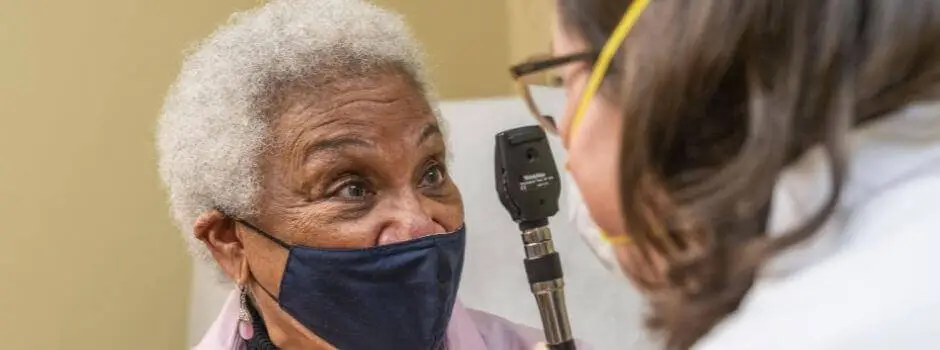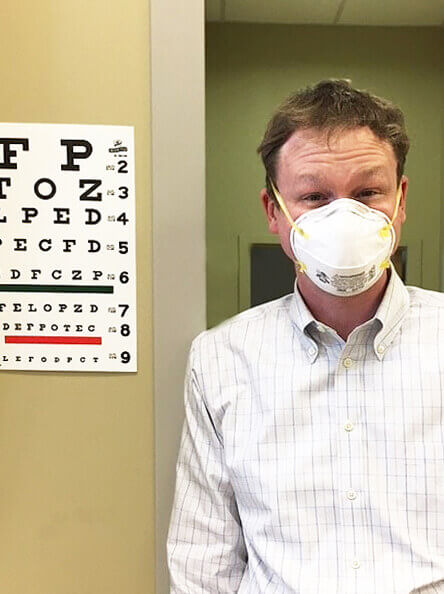35 Years, 35 Ways InnovAge Changes Lives
For our 35th Anniversary, We Celebrate Care by the Numbers.
InnovAge is proud to reach an important milestone: 35 years of empowering seniors to age independently in their homes and communities.

May 19, 2022
“Having regular eye care can make a huge difference in your physical health, mental health, and overall quality of life, says Dr. Steven Mack, medical director at InnovAge’s PACE center in Newport News, Virginia.
|
This article was medically reviewed by Luz Ramos, M.D. |
“Two of the most devastating things that can happen to an older person is a fall with a fracture or worsening brain function. Simply getting your eyes checked or wearing appropriate eye care can help prevent things like cognitive decline or a dangerous fall,” says Mack.
Despite his administrative duties as the center’s medical director, Mack still sees patients as often as he can. He says his passion for caring for others started early in life. “My grandfather had Parkinson’s Disease and I watched his movement and decline through several nursing homes and facilities. That really had an impact on me,” he says.A dental hygienist shares how she found her passion for oral healthcare and what dental services are offered through PACE.
Read MoreImprovements in hearing, speaking, and eating can be life changing. An InnovAge therapist shares the care she provides through PACE and how she helps older adults maintain their independence.
Read MoreFor our 35th Anniversary, We Celebrate Care by the Numbers.
InnovAge is proud to reach an important milestone: 35 years of empowering seniors to age independently in their homes and communities.
H0613_30220_InnovAgeWeb_CMSApproved_07_31_2023_H1239_30220_InnovAgeWeb_CMSApproved_07_31_2023_H2368_30220_InnovAgeWeb_CMSApproved_07_31_2023_H3473_30220_InnovAgeWeb_CMSApproved_07_31_2023_H6079_30220_InnovAgeWeb_CMSApproved_07_31_2023_H8655_30220_InnovAgeWeb_CMSApproved_07_31_2023_H9830_30220_InnovAgeWeb_CMSApproved_07_31_2023_H5213_30220_InnovAgeWeb_CMSApproved_08_03_2023_H7366_30220_InnovAgeWeb_CMSPendingApproval_02_10_2024
.jpg)